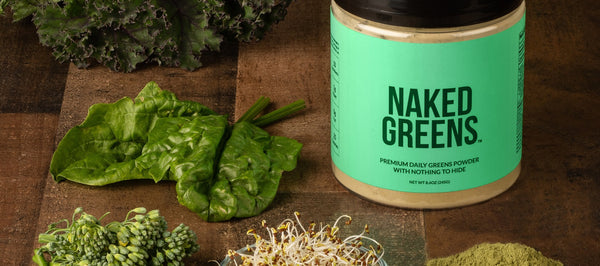If you’re looking to improve your gut health, you’ve likely considered probiotics, prebiotics, and other supplements that are well-known for their role in our gut, but what about L-glutamine?
This lesser-known amino acid may actually be an important one to consider adding to your gut health routine.
What is L Glutamine?
L-glutamine, also known as simply glutamine, is a non-essential amino acid. While it’s considered “non-essential” that doesn’t mean it doesn’t have potential value as a supplement.
Amino acids are the building blocks for protein. Essential amino acids are ones we must obtain from our diet while non-essential amino acids are made by our body. In normal circumstances, our body makes all the glutamine we need.
However, when our body is under stress glutamine may become conditionally essential, meaning we need to supplement or increase our intake of glutamine-rich foods during this time.
Glutamine functions in a variety of essential ways in our body from protein synthesis to helping to create important neurotransmitters in our brain, supporting our immunity, supporting the gut microbiome and more [1, 2, 3].
Is Glutamine Good for Gut Health?

Glutamine has been studied for its potential benefits towards gut health due to its role in supporting the gut microbiome and integrity as well as reducing inflammation [4].
Glutamine works in the intestines by promoting an increase in intestinal cells (enterocytes) while subsequently protecting them against death and inflammation by suppressing these pathways. The results improve the function and overall health of the gut [5].
Additionally, Glutamine may be beneficial for treating certain digestive disorders, such as irritable bowel syndrome (IBS) because it can help to maintain a healthy barrier within the intestines however, further research is still warranted on this [6].
What are the Other Benefits of Glutamine?
While glutamine shows promise for its use in improving gut health, this amino acid has also been linked with other health benefits, including improving immunity and boosting muscle gains.
May Boost Immunity
As noted above, glutamine plays a large role in intestinal health which is where the majority of our immune system can be found. Glutamine is essential at providing energy to these cells so they can thrive and protect us against harmful pathogens [7].
May Help With Muscle Growth
Glutamine is an amino acid, which means it helps to synthesize protein, a required nutrient for muscle growth and recovery. Some studies have found glutamine supplementation may be helpful at increasing muscle gains and improving recovery.
Other studies suggest it may help boost endurance levels in athletes by reducing certain markers for fatigue. However, there are conflicting studies available on both of these and more research is still needed on how glutamine impacts our muscles and performance [8].

What are the Best Dietary Sources of Glutamine?
Glutamine can be found in highest amounts in protein-rich foods, such as meat, fish, poultry, eggs, dairy, soy, nuts and seeds. However, it can also be found in other foods such as white rice, cabbage, and asparagus.
It’s difficult to assess the levels of glutamine in foods. If you are wanting to increase your dietary sources, it may be best to focus solely on consuming adequate protein from a variety of sources instead of singling out glutamine-rich foods.
Is it Necessary to Supplement With Glutamine?
Because our body can make glutamine on its own and we also can obtain it from our diet, it’s not necessary to supplement glutamine. However, some may find benefit in taking glutamine supplements, particularly if their body is undergoing stress from critical illness, disease, or a high-stress lifestyle as this can raise your glutamine needs.
When is the Best Time to Take Glutamine for Gut Health?
There is not currently an established recommended time period for taking glutamine specifically for gut health. When you take your glutamine will depend on what works best for you.
To get the most out of glutamine supplements, it is recommended to take them consistently. For many, this means first thing in the morning when they start their day however, other people may work better with a different schedule. There is no perfect time.
How to Maximize Glutamine's Effect on Gut Health?

While glutamine shows promise for helping improve gut health, it will work best when combined with other diet and lifestyle factors that also support a healthy gut such as eating a fiber-rich diet, incorporating regular probiotic sources, staying well hydrated, eating slowly, getting in regular movement, and prioritizing a healthy sleep routine.
Making adjustments in your routine to include more of these things can boost the effects of your glutamine supplement and help you gut feel its best.













